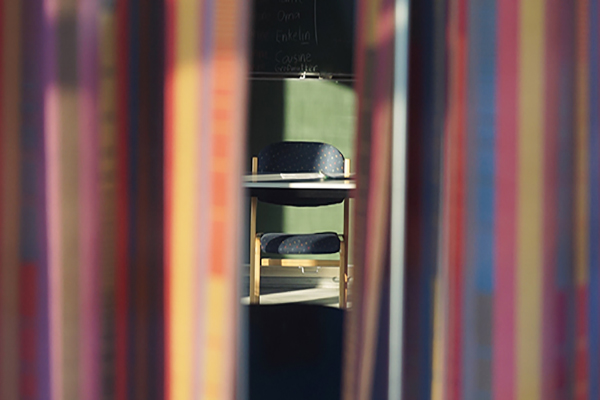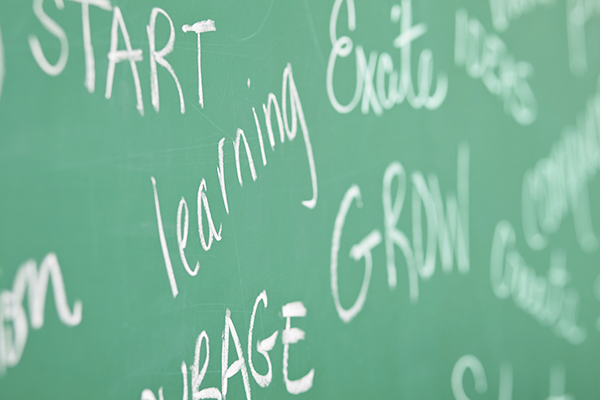Parent-teacher conferences (Parents’ evening to those of us in the UK) are in desperate need of a redesign. For too long we’ve been happy to allow this important part of the school calendar to be little more than a time-consuming annoyance. Here at the RSA we wanted to really understand how people felt about parent-teacher conferences and so we asked RSA Fellows and staff what three words they would use to describe these interactions- perhaps unsurprisingly the top three were: Formulaic, Awkward, and Rushed.

This is why the RSA has joined forces with The Teachers guild to ask educators from Sydney to San Francisco:
“How might we redesign parent-teacher conferences?”
To get us going we asked our Fellows what one thing they would change about parent-teacher conferences, here is just a few of things they told us:
“It often felt like an "us against them" set up - even if you look at the layout of the room. Parents and child would always be across the table from teachers in the sports hall. In reality, parents and teachers are on the same side - they both want the best for the young people in their care. I would like to see room layouts and methodologies/structures of conversation that encouraged consensus building to be used.”
“Try and improve the rushed and often chaotic nature of the sessions so that there is more time for reflection and mutual understanding between teachers and parents.”
“Make it student-led in terms of their work and their feedback about their own performance, behaviour and where they can improve. Teachers should guide students if they are unsure about progression or improvement.”
It’s pretty clear that something about our existing systems doesn’t work. People want a deeper and more meaningful experience but time, space and culture currently present us with barriers.
The relationship between home and school doesn’t have to be like this, and the moments in the school year when they are brought together should be the most constructive and powerful. We want all teachers to joining us on a 10-week design journey where they will not only have the chance to discover new and interesting ways to engage parents but also peak inside classroom across the globe.
Get involved:
Sign up and contribute to our discover phase
You can also share your experiences quickly using our survey
Related articles
-
The Ideal School Exhibition: rediscovering education's true purpose
Julian Astle
What kind of schooling will prepare young people not just to write a good exam, but to live a good life?
-
The Ideal School Exhibition – the RSA needs your help!
Julian Astle
Do you know a school that nurtures students' creativity & a life-long love of learning? We want to hear from you.
-
Pilot: Parents' Evening. Redesigned.
Tom Gilliford
The RSA has reached the end of its 12 week design journey with IDEO's the Teachers Guild but now the real work begins. Join us as we pilot our favourite ideas for making the home - school relationship better.




Join the discussion
Comments
Please login to post a comment or reply
Don't have an account? Click here to register.
I think the reality is, and I am speaking as a teacher and a parent, that most parents are juggling work and home and we are essentially 'time-poor'. If schools and educators can recognise this and put in place mechanisms for communication which is easy to access and allows the teacher to be responsive, then the waters will calm.
Hi Zelga,
Thanks for your comment, i think you are so right about the 'time-poor' issue. It is interesting to think that the mechanisms for communication might be, especially if we think about how digital technologies might support this.
In my (long) experience as both a parent and a teacher (and a head) parents' evenings work best when the pupil is fully involved. The teacher can share an example of their work and discuss with pupil and parents what the next steps in that subject should be. Parents then get a better understanding of their child's school experience.
Hi Kia,
Thanks for sharing your insight. One of the really interesting things to emerge from the discovery phase of this project had indeed been the idea that students are often absent for parents evenings and that is can cause problems. On the site there are some interesting examples of how people have put the child at the centre in their schools.
Yes - it's the excellent trifecta win - to get students, teachers and parents on the same page. We now know that delta sleep embeds memory, and that multi-media 'blue light' screens at before sleep time impedes melatonin secretion impeding sleep and that an antioxidant-rich calorie restricted diet stimulates body-brain health, and that high-intensity exercise stimulates neurogenesis, and a safe respectful 'experience rich environment encourages synaptic connective density, not to mention high levels of early story time reading and the commensurate concept terms learnt whilst doing so (etc etc etc) - all embedded in and mediated by the parent domain - all of which prepares and supports a child to do their best during schooling years and life. Not that we didn't know that before but now it is confirmed - parents have a vital role in optimizing their child's learning potential that the poor old teacher then has to discover and work with. Seems that what happens outside of school is equal to or more important than what happens within it to support and embed learning. So vesting parents with their primary carer responsibilities requires far more than a just a chummy parent-teacher interview - but it's a good place to start - perhaps with a parent report and checklist of how well they are supporting their child's learning. Parents are equal partners in building their child's cognitive and learning capacity; so for a start, present the case conference as equals - we've done this and this..... what have you done to support it ......etc etc etc!!! This is I believe, what Sir Ken calls the evolution of education.
Hi Samuel,
I like your idea of a parental report and checklist, we'll be opening up the ideate phase of the project soon, so check it out and feel free to share your ideas.